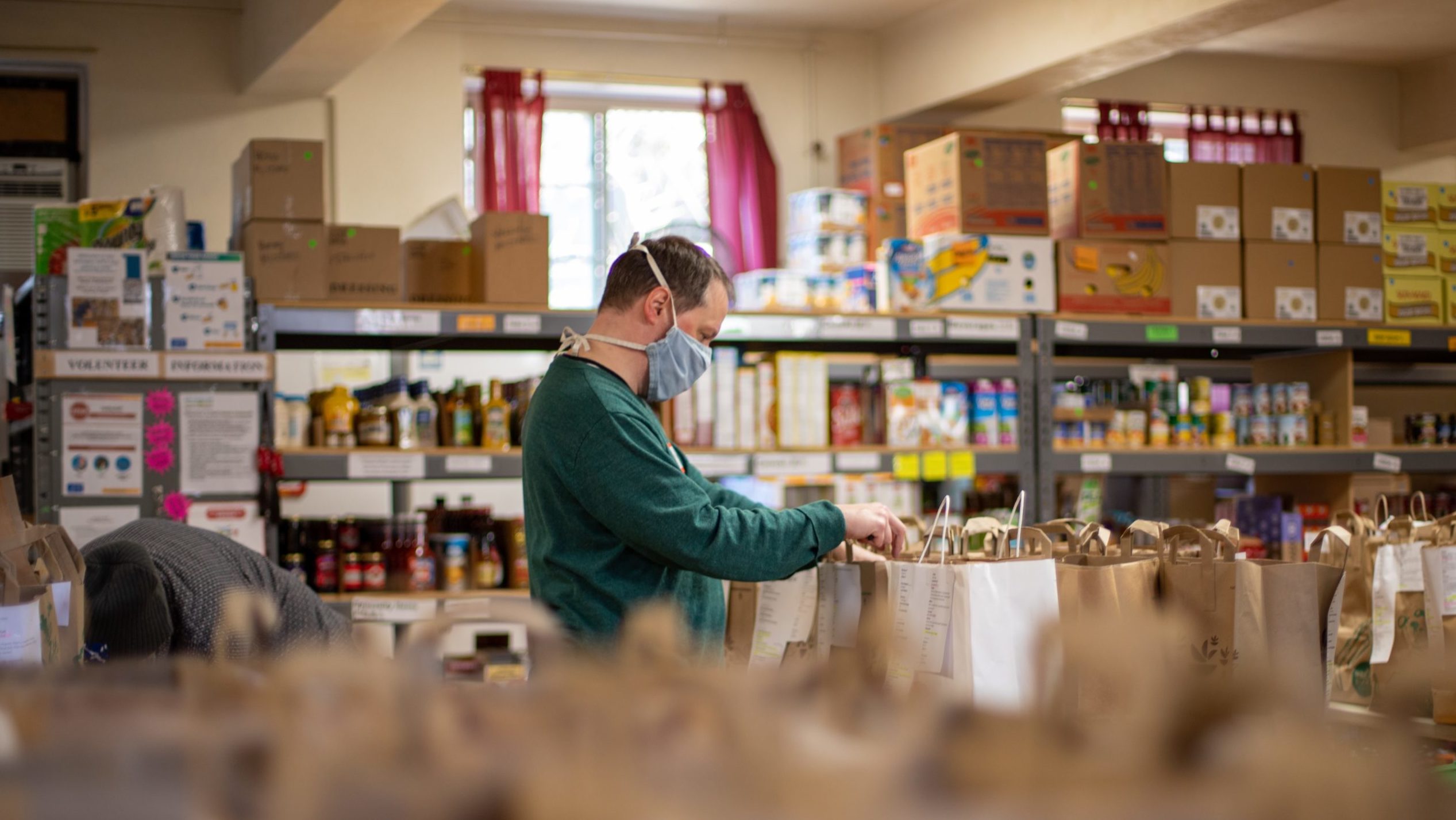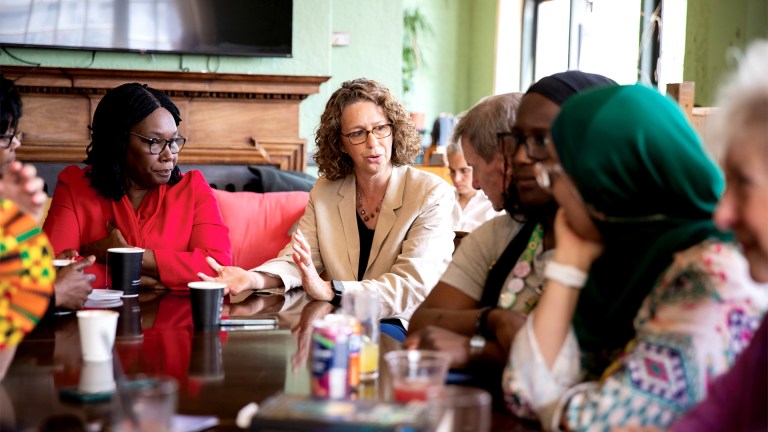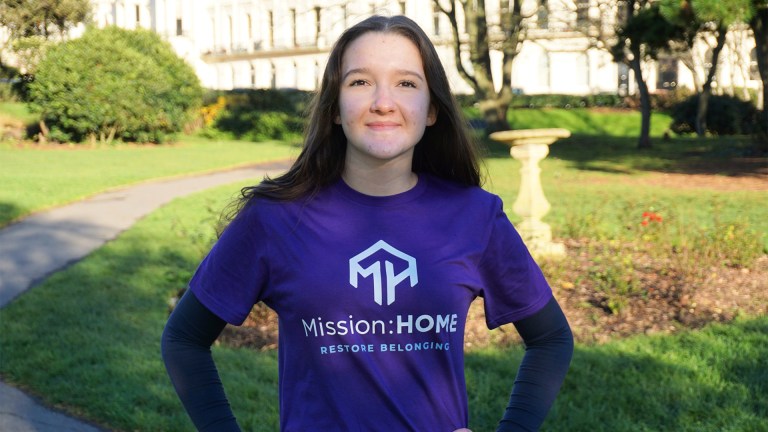Sabine Goodwin of the Independent Food Aid Network (IFAN), which represents over 550 independent food banks across the country, stresses that more food banks is not what the country needs. Instead, your time and effort might be best spent helping out at the existing food bank.
“Food banks are struggling to cope and there is room for people to get involved with volunteering and supporting the organisations that are already there,” Goodwin said. “Some of them are having to contemplate not being able to continue.”
If you’re looking to volunteer at a food bank, get in touch with your local food aid projects to find out what they need.
Your support changes lives. Find out how you can help us help more people by signing up for a subscription
See if there are other ways you can help, beside handing out food
Food is just one element of need and food parcels often act as a “sticking plaster” or a last resort.
You might think you can’t change things, but there are things you can do in your community to help alleviate the need for food banks.
Advertising helps fund Big Issue’s mission to end poverty
IFAN advocates what’s called a cash first approach – giving people cash and letting them decide what to do with it, and giving advice on how to manage money. Some IFAN food banks give out vouchers as well as food.
“Our approach is always that advice and support to maximise income needs to be the focal point when someone’s facing money worries or financial crisis. There’s plenty of debt advice and citizen’s advice services that needs volunteers,” Goodwin says.
You could consider volunteering at Citizens’ Advice to help give people that advice.
Goodwin added: “It’s about really channelling the energy in communities into what’s going to reduce the need for food banks.”
If you’re looking to volunteer in your community, check out our guide here.
Get the latest news and insight into how the Big Issue magazine is made by signing up for the Inside Big Issue newsletter
Advertising helps fund Big Issue’s mission to end poverty
Start small
If you do see pressing need in your community and nobody else is doing anything, there are things you can do.
Ray Barron-Woolford, who set up We Care, Britain’s biggest food bank, recommends just handing out supplies. There’s no need for premises – just set up a place to be each week.
“That’s the only way you can really do a street food bank these days because the costs of it are so huge,” he says.
All it really needs is some food. You might get this through apps like donations app Olio, local restaurants or even estate agents.
“I got estate agents, because they have quite a lot of money and they have storage, and I said that when you have tenants moving out of houses quite often they leave food behind. [I told them to] get them to bring it to your office and then ring me,” Barron-Woolford says. “They’d call me and I’d go round and collect the food.”
Being there at a certain time every week is crucial. Barron-Woolford points out that the end of the month is also a particularly good time to do it, as people can be struggling to stretch pay cheques.
Advertising helps fund Big Issue’s mission to end poverty
You can even get specific funding from local authorities if you have a specific community in mind.
“If you want to help certain groups of people, there’s more funding. So if you only do refugees or only do homeless, local authorities will have funding and you might be able to access some of that,” Barron-Woolford says.
Bear in mind vulnerable groups. The disabled and elderly often can’t make it out to food banks and get forgotten.
“There’s a lot of people who are housebound, and they don’t have the option to go to a food bank. A lot of food banks don’t deliver. It’s very easy, because you don’t see them, to forget the disabled,” he added.
You might be able to reach these people through local groups or neighbours, and keep in contact with them through a buddy system.
This approach is a way to establish networks and a supply of food. From there, you might realise there’s further need in your community and that setting up a permanent food bank is the way forward.
Advertising helps fund Big Issue’s mission to end poverty
“Never worry about having too much food. You can never have enough food. One weekend we were given 148 commercial-sized apple pies from Costa when all the coffee shops were closed. So I literally stood on the street corner and gave everybody that walked past an apple pie, and some said they’d give a donation,” says Barron-Woolford.
“People will give you a bit of money, so if you need specific things that you’re not getting donated you can buy them next week.”
If you are distributing food regularly, it’s a legal requirement to register with your local authority as a food business.
Think about a community fridge
Another alternative if you’re wondering how to set up a food bank is a community fridge. These are open to all rather than means tested and offer a way to use food that would otherwise go to waste. Hubbub has a guide on how to set one up.
You will need a legally registered organisation – new or existing – to lead the fridge project, for insurance purposes. And you’ll need to find a good location. One that’s accessible, popular and secure is ideal.
If you’re interested, Hubbub’s full guide – with information on security, hygiene, and health and safety – can be found here, and you can contact Hubbub by emailing communityfridge@hubbub.org.uk
Advertising helps fund Big Issue’s mission to end poverty
How to set up a food bank
Setting up a food bank itself is a big task and doesn’t suit everywhere. But here’s how you can do it.
The ingredients are fairly basic. You’ll need premises, supply of food, money, and volunteers.
Unless you’re just giving out dried and canned food, you’ll need fridges – these are expensive to run, so you will need funding to keep going. You’ll also need to contend with food hygiene regulations.
In particular, you’ve got to be able to transport the food if you’re getting it from a supermarket or warehouse. It will need to be refrigerated and you can’t just stick it in the back of your car.
It may be worth getting the input and help of an existing food bank network. Organisations like the Trussell Trust offer training and support in exchange for a membership fee and provide more information here.









